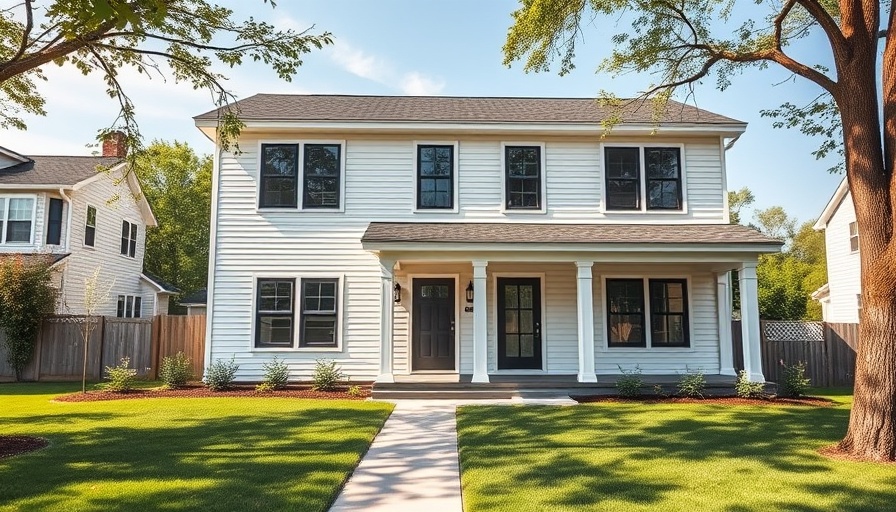
Rethinking Homeownership: What It Means Today
As the American dream of homeownership continues to evolve, recent research has revealed significant shifts in consumer attitudes towards housing. According to the America at Home Study, conducted in partnership with various housing organizations, there’s a growing trend where fewer individuals equate "home" with ownership. Today, economic pressures and climate concerns are reshaping perceptions of what it means to have a home.
The Financial Burden of Housing
Many Americans express concerns about the rising costs associated with homeownership. A staggering 40% of survey participants noted that purchasing a home where they desire to live feels financially out of reach. This sentiment is transforming the home-buying landscape, with more than 21% of respondents now viewing homeownership as a potential financial burden rather than an asset.
Changing Perspectives on Rent vs. Own
Interestingly, almost a quarter of those who transitioned from homeownership to renting cited increased operating costs as a primary reason. This shift indicates that for many, the costs of maintenance, taxes, and insurance are becoming more daunting than the idea of owning a home. The implications are clear: as operational expenses take center stage, homeownership becomes less appealing, especially among younger generations.
Generational Shifts: Paying for Efficiency
The trends are particularly pronounced among Millennials and Gen Z. More than 70% are willing to invest in energy-efficient homes, valuing long-term savings over initial purchase price. Sara Gutterman from COGNITION Smart Data highlights this evolution, noting that buyers prioritize full lifecycle costs over upfront prices. This shift is not just beneficial for homeowners but also presents an opportunity for builders to design homes that meet these new expectations, making them more sustainable and affordable.
Why This Matters for San Diego County Residents
For residents of San Diego County, understanding these trends is vital. The local real estate market reflects these national sentiments, and the desire for affordable, energy-efficient housing is becoming more pronounced. Keeping an eye on these shifts can help prospective homeowners make informed decisions about their future living situations.
As our perceptions of "home" continue to evolve, it’s crucial to stay abreast of these changes and consider how they might influence your own housing options in the coming years.
 Add Row
Add Row  Add
Add 




Write A Comment